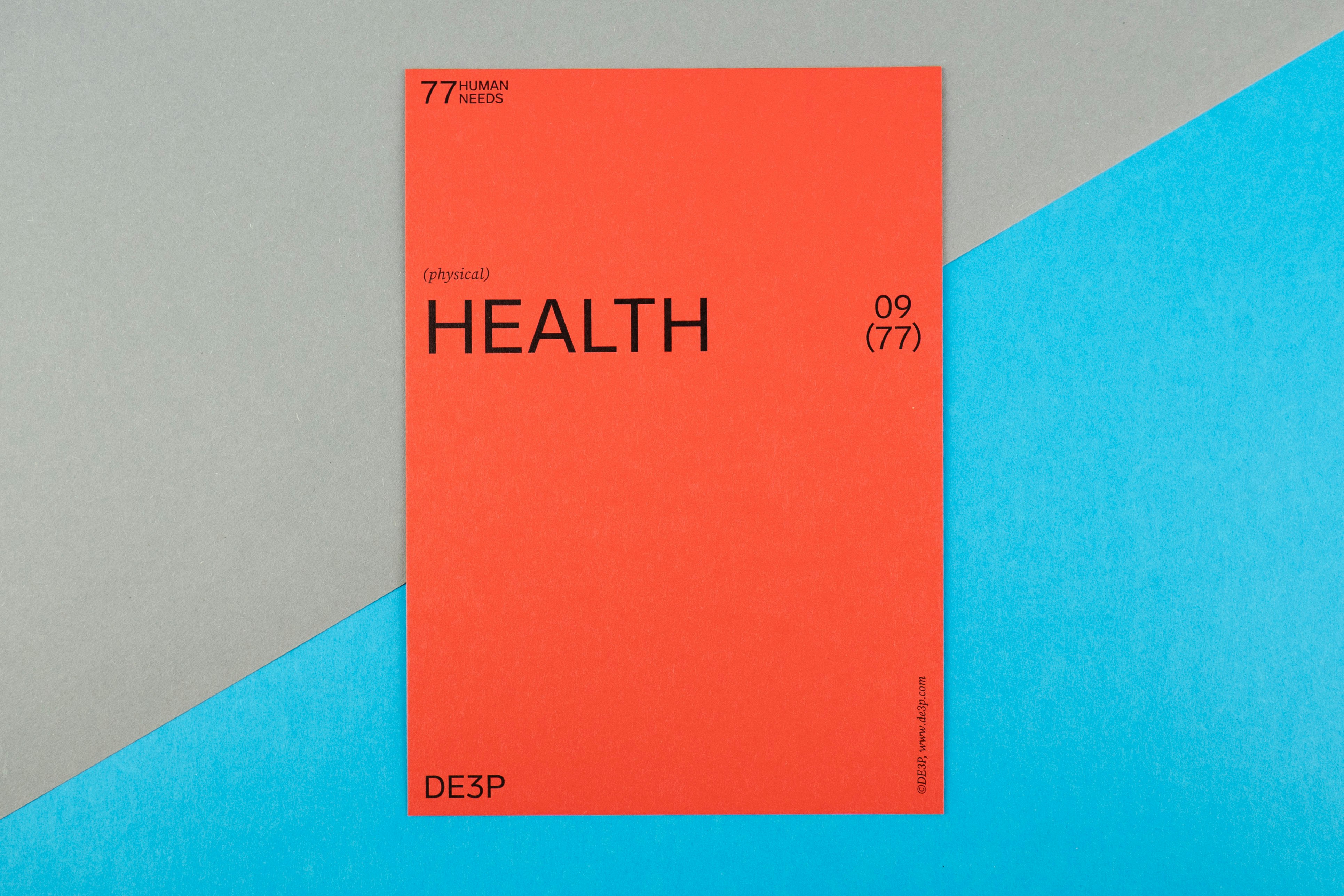Introduction to Kidney Health
The kidneys are vital organs located in the lower back, playing a crucial role in maintaining the body’s overall health. Their primary function involves filtering waste products and excess fluids from the blood, which are subsequently excreted as urine. Through this intricate filtration process, the kidneys ensure that harmful substances are effectively eliminated from the body, thereby preventing a potential buildup of toxins in the bloodstream.
In addition to waste filtration, the kidneys also actively regulate electrolyte balance—specifically sodium, potassium, and calcium—which is essential for various physiological processes, including muscle function and nerve communication. By adjusting the retention or excretion of these electrolytes, the kidneys help maintain homeostasis, which is paramount for optimal bodily function. Moreover, they contribute to the maintenance of fluid balance, ensuring that hydration levels are optimal for all bodily tissues, thereby supporting cellular processes and overall metabolism.
The significance of kidney health extends beyond their immediate functions. Healthy kidneys are vital for overall wellness, as they contribute to the regulation of blood pressure through the renin-angiotensin system and produce hormones, such as erythropoietin, that stimulate red blood cell production. When kidney health is compromised, it may lead to serious conditions, including chronic kidney disease (CKD), which can result in a cascade of complications affecting other organ systems. Poor kidney function can cause fluid overload, electrolyte imbalances, and increased cardiovascular risk, ultimately impacting an individual’s quality of life.
Given the essential roles the kidneys play, it is vital to understand the importance of kidney health and take proactive steps to support it. In this comprehensive guide, we will explore various kidney health supplements and lifestyle choices that may contribute to maintaining optimal renal function.
Common Kidney Health Issues
The kidneys play a critical role in maintaining overall health by filtering waste from the blood, regulating blood pressure, and producing vital hormones. However, various health issues can impact kidney function, leading to serious consequences. Among the most prevalent kidney-related problems are chronic kidney disease (CKD), kidney stones, and urinary tract infections (UTIs), each with unique risk factors and symptoms.
Chronic kidney disease (CKD) is a progressive condition characterized by a gradual loss of kidney function over time. Risk factors for CKD include diabetes, hypertension, and a family history of kidney disease. Early-stage CKD may exhibit no symptoms; however, as the disease advances, individuals may experience fatigue, swelling in the legs and ankles, and changes in urination patterns. Complications arising from CKD can be severe, including cardiovascular disease, anemia, and bone disorders, necessitating early detection and management.
Kidney stones represent another common issue, arising from the crystallization of substances in the urine. Risk factors for developing kidney stones include dehydration, high dietary oxalate intake, and certain metabolic disorders. Symptoms usually manifest as intense pain in the lower back or abdomen, blood in the urine, and nausea. If left untreated, kidney stones can lead to infections, obstruction, and potential kidney damage.
Urinary tract infections (UTIs), while more common in women, can affect anyone, posing a risk to kidney health. Factors contributing to UTIs include sexual activity, certain contraceptives, and urinary retention. Symptoms may include a strong desire to urinate, painful urination, and cloudy urine. If a UTI ascends to the kidneys, it can result in pyelonephritis, a serious condition that necessitates prompt medical attention.
In summary, awareness of these common kidney health issues, their risk factors, and symptoms is essential for prevention and early intervention. Understanding these problems can empower individuals to seek appropriate care and maintain kidney health.
The Role of Diet in Kidney Health
Diet plays a pivotal role in maintaining kidney health and supporting overall renal function. A well-balanced dietary regimen can significantly influence kidney well-being, particularly for individuals at risk of kidney disease. One of the foremost recommendations is to ensure adequate hydration, as water is essential for optimal kidney function. Sufficient fluid intake facilitates the kidneys in flushing out toxins and waste products, thus reducing the risk of kidney stones and urinary tract infections.
Another critical aspect is the reduction of sodium intake. Elevated sodium levels can lead to increased blood pressure, which may further compromise kidney function. It is advisable to limit the consumption of processed and packaged foods, which often contain hidden sodium, and opt for fresh, whole foods. Substituting salt with herbs and spices can also enhance flavor while maintaining a lower sodium footprint in meals.
In addition to managing sodium, protein consumption must be moderated. High protein intake can exert additional strain on the kidneys, particularly in individuals already experiencing renal impairment. Therefore, it is essential to balance protein sources, emphasizing plant-based proteins, such as beans and legumes, which are easier on the kidneys and provide additional health benefits. Careful meal planning can help achieve this balance, ensuring that protein intake remains adequate without overwhelming kidney function.
Incorporating kidney-supportive foods into one’s diet can also make a significant difference. Foods rich in antioxidants, such as berries, leafy greens, and fatty fish, contribute to overall kidney health by reducing inflammation and oxidative stress. These choices not only nourish the body but also foster a protective environment for the kidneys, enhancing their function over time. Thus, a mindful approach to diet, focusing on hydration, sodium reduction, protein management, and kidney-supportive foods, is crucial in promoting long-term kidney health.
What Are Kidney Health Supplements?
Kidney health supplements are specially formulated products designed to support and enhance the functioning of the kidneys. These supplements can take various forms, including vitamins, minerals, herbs, and other natural compounds. Each type of supplement serves a specific purpose, aimed at addressing specific kidney health needs or enhancing overall renal function.
Among the common categories of kidney health supplements, vitamins play a critical role. For instance, Vitamin B6, Vitamin C, and folic acid are known to aid in various biochemical processes crucial for kidney function. These vitamins can promote the production of red blood cells and reduce levels of homocysteine, an amino acid linked to cardiovascular issues, which is particularly important since individuals with compromised kidney health are often at higher risk for heart disease.
Minerals such as potassium, magnesium, and phosphorus are also essential in maintaining kidney health. While potassium must be carefully regulated in those with kidney issues, adequate intake can facilitate electrolyte balance essential for healthy kidney function. Magnesium plays a role in over 300 enzymatic reactions in the body, including those related to muscle and nerve function, which can indirectly support kidney health.
Herbal supplements, including extracts from dandelion and nettle, are gaining attention for their potential benefits. Dandelion is known for its diuretic properties, which may help maintain kidney function by promoting the elimination of waste through urine. Nettle, on the other hand, is believed to reduce inflammation and support the overall detoxification process within the body.
Overall, kidney health supplements can be beneficial when chosen wisely, keeping in mind individual health needs and consulting healthcare professionals for guidance. The collaborative effects of vitamins, minerals, and herbal ingredients can significantly aid in supporting kidney function and promoting optimal health.
Popular Kidney Health Supplements: Benefits and Risks
Kidney health supplements are often sought after for their perceived benefits in promoting renal function and overall well-being. Among the most popular of these supplements are omega-3 fatty acids, probiotics, and various herbal remedies such as dandelion root and nettle leaf. Each of these options has garnered attention for its potential advantages, as well as its associated risks.
Omega-3 fatty acids, primarily found in fish oil, are renowned for their anti-inflammatory properties. These fatty acids have been studied for their potential role in kidney health, with some evidence suggesting that they may aid in reducing inflammation associated with chronic kidney disease. However, it is crucial to be mindful of the dosage as excessive intake can lead to bleeding disorders or interact with blood-thinning medications.
Probiotics, which are live microorganisms that provide health benefits when consumed, have been explored in relation to kidney health due to their ability to maintain gut microbiota balance. Some studies indicate that probiotics might support kidney function and help reduce the toxicity of uremic substances. Despite their benefits, individuals using probiotics should be cautious, as they can cause gastrointestinal disturbances, and may not be suitable for those with compromised immune systems.
Herbal remedies like dandelion root and nettle leaf are frequently touted for their diuretic properties, which may help in flushing out toxins and supporting kidney function. Dandelion root is recognized for its potential to enhance the excretion of water, possibly alleviating symptoms of fluid retention. Nettle leaf, on the other hand, is considered to help maintain healthy renal function. Nonetheless, these herbal remedies can interact with prescription medications and may cause allergic reactions in some individuals, necessitating a thorough consultation with a healthcare provider prior to usage.
In conclusion, while kidney health supplements like omega-3 fatty acids, probiotics, and herbal remedies may offer several benefits, it is essential to weigh these against potential risks and interactions with medications. Consulting with a healthcare professional before starting any supplement is advisable to ensure safety and efficacy.
How to Choose the Right Supplement for Kidney Health
When selecting a kidney health supplement, individuals must consider several key factors to ensure they are making informed choices that align with their unique health needs. One of the primary considerations is individual health conditions. For instance, pre-existing conditions such as diabetes or hypertension can significantly impact kidney function, necessitating a tailored approach when selecting supplements. It is essential to consult with healthcare professionals who can provide personalized advice based on an individual’s medical history and current health status.
Moreover, the quality of the supplement is another crucial factor in this decision-making process. The market is flooded with various supplements claiming to promote kidney health, but not all are created equal. Interested consumers should look for products that have been third-party tested, which ensures that they meet specific safety and efficacy standards. Certifications from reputable organizations can serve as a reassurance of quality and transparency in the manufacturing process.
In addition to individual health conditions and product quality, the role of lab testing cannot be overlooked. Regular blood and urine tests can provide valuable insights into kidney function, allowing healthcare providers to make informed recommendations for supplement choices. By understanding specific biomarkers and how they relate to kidney health, individuals can better target their supplementation efforts. Not only can this enhance the effectiveness of the chosen supplements, but it can also prevent potential interactions with medications and other treatments.
Ultimately, choosing the right supplement for kidney health involves a comprehensive approach that considers personal health conditions, the quality of the supplement, and the insights gained from lab testing. By prioritizing these factors and seeking guidance from healthcare professionals, individuals can make well-rounded decisions that support their kidney health effectively.
Lifestyle Changes to Support Kidney Health
Maintaining optimal kidney health is crucial for overall well-being. Lifestyle modifications play a significant role in ensuring that the kidneys function effectively. One of the primary recommendations is to maintain a healthy weight. Being overweight can increase the risk of developing conditions such as hypertension and diabetes, both of which can adversely affect kidney function. Consequently, individuals should focus on a balanced diet rich in vegetables, fruits, whole grains, and lean proteins to achieve and maintain a healthy weight.
Regular exercise is another key component in supporting kidney health. Engaging in physical activity helps to improve blood circulation, enhance metabolic rates, and reduce the risk of chronic diseases. It is generally recommended that adults aim for at least 150 minutes of moderate-intensity aerobic activity per week. Simple practices such as walking, cycling, or swimming can contribute significantly to physical fitness and overall wellness.
Quitting smoking is also essential for maintaining kidney health. Tobacco use has been linked to various health problems, including cardiovascular disease and kidney damage. Those who smoke should seek resources and support to help them quit, which can ultimately lead to improved kidney function along with a myriad of other health benefits.
Managing blood pressure is crucial, as high blood pressure can lead to kidney damage over time. Regular monitoring and adopting a low-sodium diet can help in maintaining healthy blood pressure levels. In addition to these lifestyle changes, integrating holistic health practices such as stress management techniques, adequate hydration, and sufficient sleep can further enhance kidney health. Combining these strategies with kidney health supplements can provide a comprehensive approach for maintaining optimal function and preventing potential complications.
Consulting Healthcare Professionals
When considering kidney health supplements, it is crucial to engage in discussions with healthcare professionals, particularly for individuals who have existing kidney conditions or other related health issues. Healthcare providers bring valuable expertise and insights into how specific supplements can interact with medications, affect overall health, and subsequently impact kidney function.
To facilitate a productive conversation, individuals should first identify any kidney health supplements they are considering or currently taking. It is advisable to create a comprehensive list that includes the supplement name, dosage, and any associated health benefits claimed by the manufacturer. Once this list is prepared, scheduling an appointment with a healthcare provider is the next step. During this appointment, individuals should feel encouraged to discuss their health history comprehensively, especially any kidney-related issues or other conditions that may influence supplement efficacy and safety.
Effective questions to pose during this consultation might include: “Are there specific kidney health supplements you recommend for my condition?” or “What potential side effects should I be aware of with these supplements?” It is also essential to inquire about potential interactions with existing medications. By being proactive and informed, individuals can ensure that they use supplements safely and effectively while minimizing risks associated with kidney health.
Furthermore, it is valuable to inquire about alternative treatment options and lifestyle modifications that can promote kidney health. This holistic approach can provide a well-rounded understanding of how to maintain overall kidney health, ensuring that supplement use is just one aspect of a broader health strategy. Ultimately, consulting with a healthcare professional is a vital step in navigating the complexities of kidney health supplements.
Conclusion: Prioritizing Kidney Health
In summary, maintaining kidney health is essential for overall well-being, given the vital roles these organs play in filtering blood, eliminating waste, and regulating bodily functions. The complexity of kidney health necessitates a multifaceted approach that combines a balanced lifestyle with informed choices regarding supplementation. As we have discussed, various supplements can potentially support kidney health by providing essential nutrients that may enhance kidney function, reduce inflammation, and promote detoxification.
While there is a growing body of evidence on the benefits of certain kidney health supplements, it is crucial to recognize that these should not replace a healthy diet or regular medical check-ups. A nutrient-rich diet, rich in fruits, vegetables, whole grains, and lean proteins, plays a paramount role alongside appropriate supplementation. Furthermore, factors such as hydration, regular physical activity, and avoiding harmful substances can significantly affect kidney function and health.
As individuals seek to integrate supplements into their health regimen, it is advisable to consult healthcare professionals. A qualified provider can help identify the most suitable products based on individual health needs, existing medical conditions, and any medications currently being taken, ensuring that the supplements enhance rather than hinder kidney health. By being proactive in caring for our kidneys, embracing a holistic approach to health, and making informed decisions, we can foster a foundation for optimal kidney function and overall wellness.



